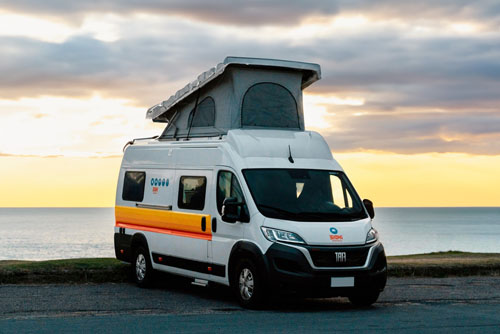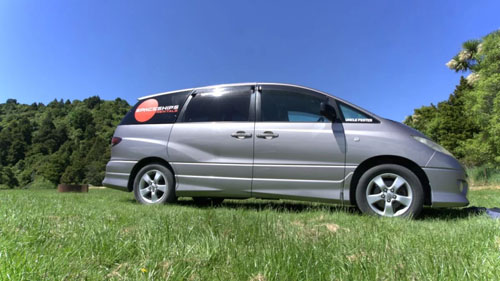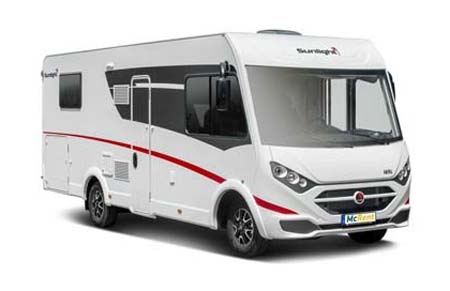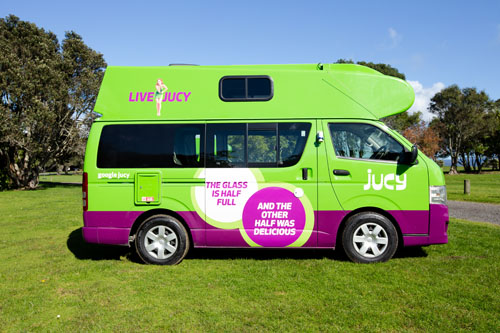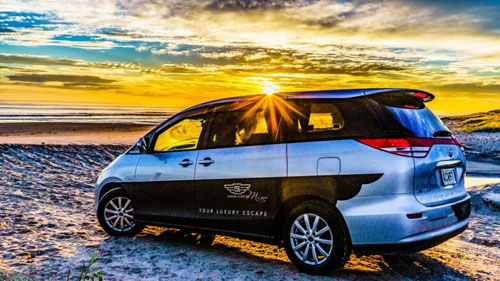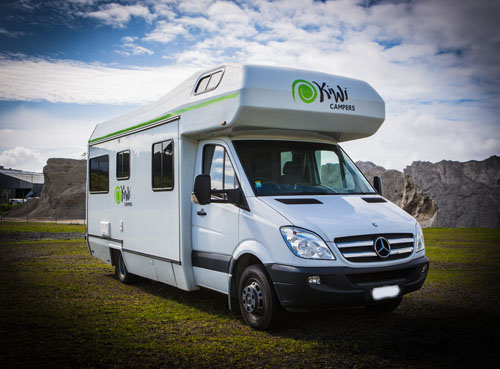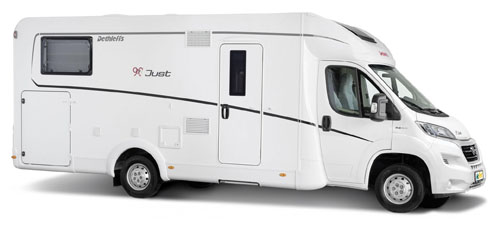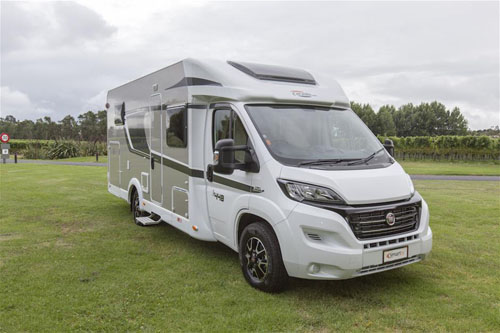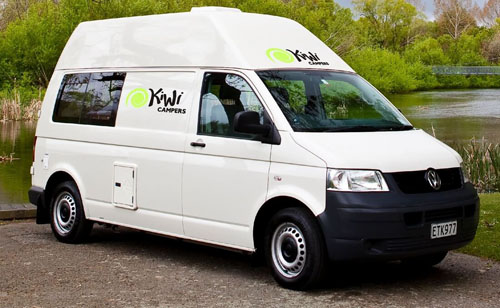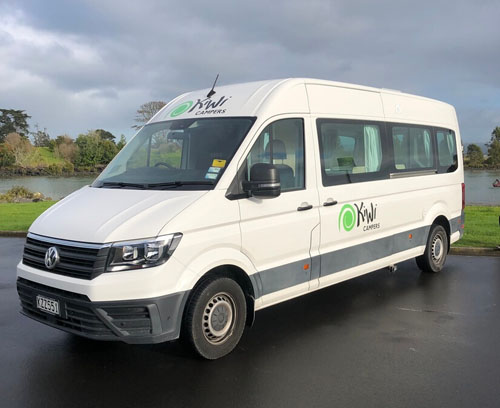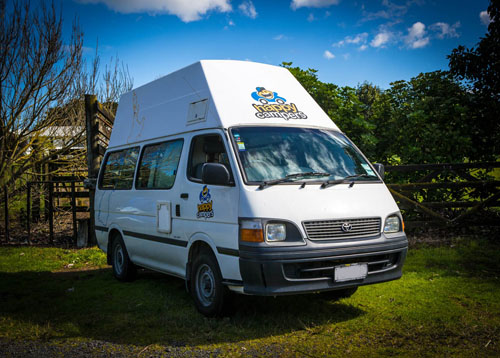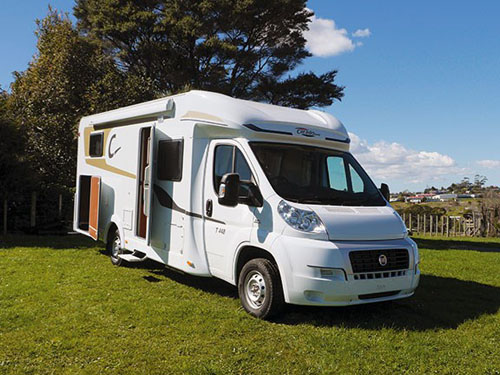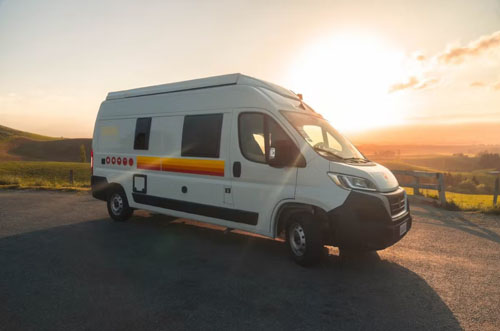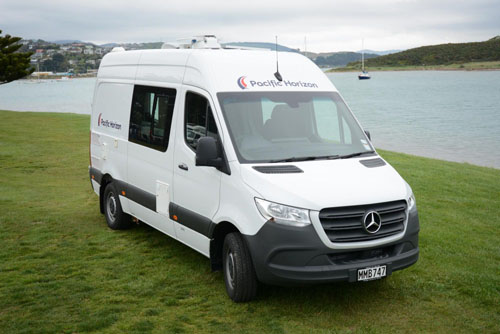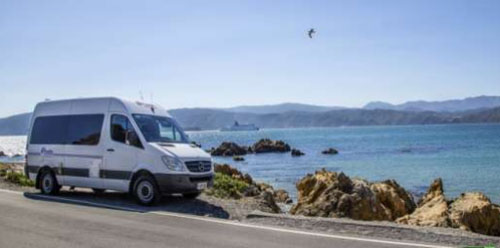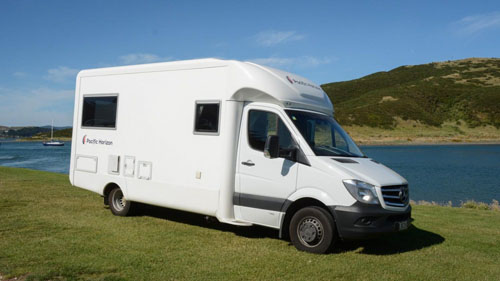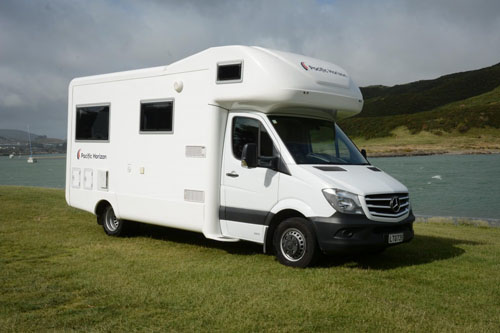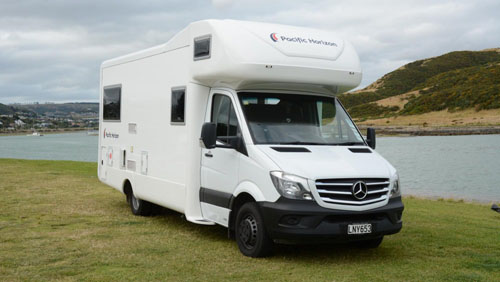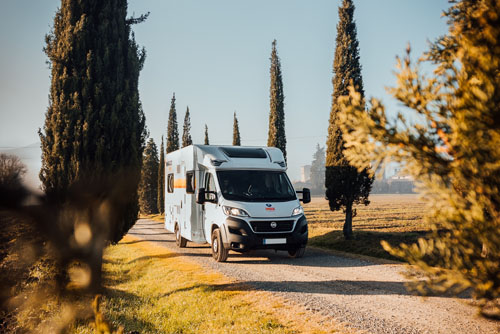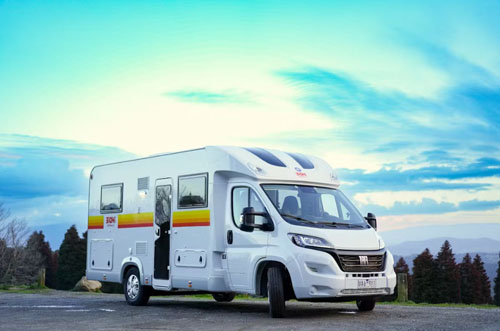a in the
Here’s everything you need to know before you a in the .
This guide covers the four most important aspects of planning a in the :
-
The cost of a
-
How to operate a and key considerations
-
Planning your road trip route
-
General information and tips for in the
![Imagine you are here now with a Vehicle Verb in Destination Imagine you are here now with a Vehicle Verb in Destination]()
What About Returning a to a Different City?
One-way typically involves an added fee. All additional costs will be clearly displayed at checkout.
💡Tip: prices vary by route and direction. a from City A to City B may cost significantly more (or less) than the reverse route on the same dates.
💡Tip: We occasionally offer discounts on return fees—check the site for promos.
![One way Verb from Destination to Drop_off_1 One way Verb from Destination to Drop_off_1]()
How can I Check Availability in real time?
Availability changes constantly and can only be confirmed on the website. There are two options:
1. Ready to book?
Submit an order with credit card details. If available, your order is confirmed. If not, we’ll offer alternatives—no obligation, no charge.
2. Not sure yet?
Use the "Want to, but not sure yet" option. We’ll check availability and offer you options.
Ordering multiple s for a group trip? Just mention it in the notes—we’ll do our best to accommodate all vehicles together.
![How can I Check Availability for Vehicle Verb in Destination How can I Check Availability for Vehicle Verb in Destination]()
I'm Flexible—How Can I Find the Best Price?
Take advantage of two key tools on our site:
Date arrows: Easily shift your dates a few days forward or backward to view price differences.
Flexible search: Choose your ideal duration and a wide date range (e.g., 14 days anytime in October). Our engine will scan for the best available two-week deal in that timeframe.
💬 Have questions? Reach out via email or WhatsApp (+972 58-5471771) during office hours.
![Vehicle Verb in Destination flexibility Search Vehicle Verb in Destination flexibility Search]()
Is It Cheaper to a in the for a Month?
Not necessarily. Monthly deals may offer a lower daily rate, but that doesn't mean you’ll save overall. Always compare your total expected costs.
Cheap in the – How to Predict Costs
Prices are driven by supply and demand. To get the best deal:
Book during the off-season
Be flexible with your dates
Check how long the has been in use (newer = more expensive)
Pay attention to what’s included in the base price
Results are always shown from lowest to highest price, and you can filter based on what matters most to you.
👉 [Click here to explore options in the ] (link)
How Much Does It Cost to a in the ?
On our website, you’ll find real-time availability, detailed vehicle specs, and full transparency in pricing.
The cost of a is affected by:
Pickup and return locations
Duration of your trip
Vehicle size and comfort level
Estimated mileage
Insurance level
Extra equipment (like bedding and kitchenware)
Why Book Through Bandana Caravan?
Bandana Caravan is a trusted leader in services. Here’s why:
✅ Full Transparency
We sell the way we’d like to buy – with honesty. No hidden fees, no surprises, no tricks or gimmicks. What you see is what you get.
✅ Strong back Support, almost 24/7 for emergency issues
We’re here for you – even when you’re abroad. Whether it’s a technical issue or an emergency, you’re never alone.
✅ Top-Level Deductible Reimbursement
Travel with peace of mind. We recommend and offer an excess reduction insurance, backed by reliable, experienced suppliers.
✅ Rent&Plan - Book an RV with a pre-planned route
Prefer a route that’s already been tried and tested? Choose from pre-planned trips built by pros – with hand-picked campgrounds and attractions.
✅ 25% Discount for Independent Planners
Want to plan your own trip? Use rvplan.net – the most advanced RV route planner – and get rewarded with a 25% discount on planning services.
✅ True Specialists
We’re not a side department of a general travel agency. Bandana is all about motorhome travel. That’s our world – and our specialty.
✅ Support That Doesn’t Disappear When Things Go Wrong
Our experienced team genuinely cares. We’re here to help – with real answers, in real time, if anything goes wrong.
✅ Expertise in – and not just a travel agency
Bandana specializes exclusively in trips. This is not a small department within a travel agency.
✅ Smooth, User-Friendly Booking
Our website is built for you: clear, simple, and packed with everything you need to know in one place.
✅ Direct Official Agency
We work directly with all major RV suppliers – no third-party agencies, no added layers, no middlemen.
✅ We’re With You After the Booking, Too
You’re not just a booking number. Our relationship continues after you hit the road – because true service doesn’t end at checkout.
🎯 And one more thing (maybe the most important): Our Lowest Price Guarantee
Found the exact same RV at a lower official rate? Send it to us.
We’ll check it and match or beat the price – so you know you’re getting the best deal.
You’ll never pay more with Bandana.
Is the Price You See Online the Final Cost?
When you book a in the via Bandana Caravan, you get live, accurate pricing—no hidden fees, no surprises.
While the base price is shown up front, you should also consider additional costs such as:
- Campsite fees
- Fuel
- Food and groceries
- Entertainment and attractions
- Optional upgrades
What Is the Price for a in the ?
Searching for the best deals in the ?
No more endless phone calls, scattered quote requests, or confusing spreadsheets. Gone are the days of outdated pricing and delayed responses. With our streamlined online system, planning your in the is easier than ever.
Just enter your travel details—choose your pickup location (airport or city), select your dates, the number of travelers, and hit "Search."
In seconds, you’ll get live results for in the , complete with filters to customize your search. Planning a coast-to-coast journey (like from New York to Los Angeles)? Check out the sample below for step-by-step guidance.
![What Is the Price for Verb a Vehicle in the Destination What Is the Price for Verb a Vehicle in the Destination]()
How Can You Get the Best Price for a in the ?
Our platform displays all options in ascending price order—from budget to premium.
The main factors that influence the cost include:
- Type and size of the
- Travel distance (mileage is not included and charged separately)
- Insurance options (standard vs. comprehensive)
- Additional gear (bedding, kitchen sets, etc.)
What Is the Best Rental Period?
The ideal rental period depends on your travel goals, group type, and the size of the area you want to explore. However, here are a few guidelines to help you decide:
Renting a for a Week
A 7-day trip is perfect for exploring one focused region in . It’s a great choice for:
-
First-time travelers
-
Long weekends or school breaks
-
Visiting one national park or a short scenic route
-
Travelers with limited vacation time
-
Recommended trip ideas:
-
Coastal loops
-
One-state tours
-
National park highlights
-
2-Week Trip in
A 14-day gives you more flexibility and time to explore diverse landscapes. This is ideal for:
-
Visiting multiple national parks or regions
-
Slower-paced travel with time for relaxation
-
Recommended trip ideas:
-
Cross-country routes
-
Multi-state or multi-region itineraries
-
Coastal to inland journeys (e.g., beach + mountains)
-
Summary:
-
1 week – Great for short regional adventures
-
2 weeks – Ideal for full exploration and deeper experiences
-
3+ weeks – Best for coast-to-coast, international bucket-list trips, or slow travel
-
Many travelers say that after a short trip, they wish they had booked for longer. If time and budget allow, 2 weeks is often the sweet spot for a rich and relaxed experience in .
-
Combining nature, cities, and family attractions
-
Travelers who want a balanced, immersive experience
Who is traveling with the ?
-
Great question! When planning a trip, the experience can vary significantly depending on who you're traveling with. Here's a breakdown of the major differences between traveling as a family, couple, honeymooners, group of friends, or multiple families:
-
👨👩👧👦 Family Trip
Focus: Convenience, routine, safety, family attractions
Key differences:
-
Kids require safe sleeping arrangements and child seats.
-
The itinerary often includes amusement parks, zoos, kid-friendly hikes, and short driving days.
-
Meals and rest times are structured.
-
Requires more storage space, often leading to larger choices (Class C or larger).
-
Campgrounds with playgrounds, pools, or entertainment are preferred.
-
💑 Couple’s Trip
Focus: Flexibility, romance, shared experiences
Key differences:
-
Prioritize scenic spots, wineries, coastal drives, or cultural experiences.
-
Often choose smaller s (campervans or compact RVs) for easier maneuvering and lower costs.
-
May travel at a slower pace, enjoying sunsets, hikes, and quiet locations.
-
More spontaneous—less likely to pre-book every campground.
-
💍 Honeymoon
Focus: Privacy, romantic settings, unique experiences
Key differences:
-
Emphasis on remote or exclusive destinations—beaches, lakesides, hot springs.
-
Comfort is important—choosing a well-equipped with a queen bed, private bathroom, and possibly extras like outdoor showers or panoramic windows.
-
Luxury campgrounds (glamping-style) and boutique RV parks are often selected.
-
Focus: Fun, shared memories, adventure
Key differences:
-
Social atmosphere—outdoor BBQs, campfires, music.
-
Budget is often split, so they may opt for multiple smaller s or one large RV with bunk beds.
-
Activities include hiking, kayaking, nightlife, or festivals.
-
Less structured itinerary with more flexibility for spontaneous stops.
-
👨👩👧 + 👨👩👦 Two or More Families Traveling Together
Focus: Community, coordination, kid-friendly fun
Key differences:
-
Each family usually rents a separate for privacy and space.
-
Requires synchronized route planning and campground reservations for group sites or adjacent spaces.
-
Meals may be shared or rotated between families.
-
Destinations and activities must appeal to a wide age range and keep all kids entertained.
-
Summary Table
| Traveler Type |
Vehicle Size |
Pace |
Key Needs |
| Family |
Medium–Large RV |
Moderate |
Safety, routine, kid activities |
| Couple |
Small–Medium RV |
Flexible |
Romance, simplicity, scenic routes |
| Honeymooners |
High-end RV |
Relaxed |
Comfort, privacy, special locations |
| Group of Friends |
Large RV or 2 RVs |
Dynamic |
Social settings, shared adventures |
| Multiple Families |
2+ Medium RVs |
Coordinated |
Space, group-friendly campgrounds |
🧑🤝🧑 Group of Friends
-
Focus: Fun, shared memories, adventure
Key differences:
-
Social atmosphere—outdoor BBQs, campfires, music.
-
Budget often split, so they may opt for multiple smaller s or one large RV with bunk beds.
-
Activities include hiking, kayaking, nightlife, or festivals.
-
Less structured itinerary with more flexibility for spontaneous stops.
2. Operation
What makes travel in unique?
Traveling by in offers a distinctive and enriching experience thanks to several standout features:
-
Flexibility: Create your own schedule, change plans on a whim, and explore hidden gems off the beaten path.
-
Scenic Routes: Enjoy breathtaking landscapes, from coastal highways to rugged mountains, with the freedom to stop and soak in the views.
-
Cost-Effective Lodging: With your doubling as accommodation, you can reduce hotel expenses and stay at affordable campgrounds and parks.
-
Camping Comfort: Embrace the outdoor lifestyle with the added comfort and amenities of a mobile home.
-
Cultural Immersion: Visit small towns, interact with locals, and experience authentic regional culture up close.
-
Family-Friendly Travel: trips are perfect for families, offering a familiar and self-contained environment for kids.
-
Adventure & Spontaneity: Follow your instincts and discover new places without being bound to a strict itinerary.
-
National Parks Access: is rich in national parks, and travel provides easy access to many of them.
-
Community Atmosphere: parks often foster social connections with fellow travelers and helpful tips on where to go next.
-
Lasting Memories: From sunset views by the fire to spontaneous detours, the journey itself becomes the highlight.
Tips for First-Time in
If you’re new to travel in , here are key things to know:
-
Review Vehicle Details: Carefully read all vehicle specs, terms and conditions, included amenities, insurance options, and pickup/drop-off policies on our website.
-
Confirm Arrival & Timing: Allow 1.5 hours post-flight for customs and baggage. Plan your route to the center to arrive at least 1 hour before closing time.
-
In Case of Delays, Inform the center if your flight is delayed. You may need to arrange hotel accommodation for the first night.
-
Documentation: Important info, such as required documents and pre-check-in procedures, is included in your confirmation email and rental voucher.
-
It is strongly recommended that our Rent@Plan - rent a together with a pre-plan route made by props.
Getting to the Station
Most stations in require renters to arrange their own transportation to the pickup location.
-
Transport Options: Some stations offer shuttle service for an extra fee.
-
Website Info: Each listing includes directions, nearby hotels, maps, and transport service details.
Age Requirements
In , the minimum age to a is typically 21 years. Check the specific age and license requirements for each listing on our site.
Pickup & Drop-off Days
Most stations in operate Monday to Saturday. Sunday pickups may be available with advance arrangement and a surcharge. Winter seasons may bring reduced hours or closures.
Cross-Border Travel
Yes, you can typically take a from to neighboring countries. However:
-
Travel to : Requires special permission and additional insurance.
-
One-way Rentals: Picking up in and returning in is usually not allowed.
-
Documents & Coverage: Bring passports, insurance papers, and verify your cross-border coverage with the provider.
-
Sign permission from the rental center: In some countries, mostly in , you will need a pre-authorization document to cross borders
One-Way Rentals
Returning the to a different station is often possible but may include an added fee and is subject to availability.
From you can travel to:
- One-way rental with pickup in and dropping off in
- One-way rental with pickup in and dropping off in
- One-way rental with pickup in and dropping off in
- One-way rental with pickup in and dropping off in
- One-way rental with pickup in and dropping off in
- One-way rental with pickup in and dropping off in
- One-way rental with pickup in and dropping off in
- One-way rental with pickup in and dropping off in
- One-way rental with pickup in and dropping off in
- One-way rental with pickup in and dropping off in
Safety Tips for Traveling with Children
-
Childproofing: Use cabinet locks, cover outlets, and secure potential hazards.
-
Car Seats: Must be age-appropriate and properly installed.
-
Sleeping Setup: Use travel cribs or secure bunks and ensure safe sleeping conditions.
-
Supervision & Rules: Set play zones and teach safety, especially when the vehicle is in motion.
Are Car Seats Mandatory?
Yes. Most [Vehicles] accommodate child seats using lap belts or rear safety straps. Some models may restrict travel with very young children—check our website for exact model guidelines.
Driver's License Requirements
A regular Class B license is sufficient for most [Vehicles]. Larger models (Class A, over 35 feet) may require a Class C license.
International renters may need an International Driving Permit (IDP)—check with your licensing authority.
Water & Waste Management
Each includes:
Toll Roads
Tolls apply on certain roads, bridges, and tunnels in , depending on the state or region. Familiarize yourself with local toll systems before your trip.
Driving Safety Guidelines
-
Learn your dimensions before setting off.
-
Practice driving in a safe area.
-
Plan routes that accommodate your 's size.
-
Monitor weather forecasts.
-
Follow speed limits and leave extra braking distance.
-
Secure loose items inside the cabin.
-
Watch gas levels and plan fuel stops for larger vehicles.
-
Always carry an emergency kit.
Required Documents for picking up a in
You’ll need:
Additional Drivers
Additional drivers are usually allowed free of charge, but must be present at pickup with a valid license and sign the rental agreement.
Deposit Requirements
Most rentals require a deposit of US$500–1,500, charged at pickup and refunded if no damage or fines occur. Payment is usually via Visa or Mastercard.
Pickup & Return Scheduling
Call the station between 08:00–09:00 on the pickup day to schedule your pickup time (typically between 13:00–16:00). Early pickups may be possible at extra cost with advance arrangement.
Insurance Options
Most rentals include comprehensive insurance with a deductible of 1,000–2,500. Some also include SLI (third-party liability). Optional deductible-waiver insurance may be available.
🔒 Optional Insurance Upgrades
You can enhance your coverage with the following:
1. SLI – Supplemental Liability Insurance
Provides extended third-party liability coverage, protecting you in case of damage or injury to others or their property.
2. CDW – Collision Damage Waiver / Excess Reduction
Reduces your financial responsibility (deductible) in case of damage to the .
💡 How to Purchase CDW / Excess Reduction
You have two ways to purchase additional coverage:
Option 1: Through the Local Supplier
-
Add it directly when booking your .
-
The insurance is provided by the rental station at pickup.
-
Usually the easiest option for full coverage with minimal paperwork.
Option 2: Via an International Insurance Provider
-
After confirming your booking, we’ll send you a detailed email with:
-
This option is often more affordable and can be used across multiple rentals.
🛡️ Our Tip
For stress-free travel, we strongly recommend adding CDW or using a reliable third-party provider to limit your liability in case of unexpected events.
Let us know if you need help choosing the right option—we're happy to advise based on your destination and travel style.
Is Driving a Easy?
Yes—with practice. The main challenge is adjusting to the size. Be cautious when reversing and know your height for bridges and tunnels.
Passenger Limits
The number of allowed passengers is listed on each license. Overloading is prohibited. All occupants must use seat belts, and upper bunks are for sleeping only—not for use while driving.
Winter Travel
Winter travel is generally permitted, but:
-
Most water systems must be winterized (antifreeze added).
-
Some [Vehicles] are winter-proof, but confirm before booking.
-
Ensure proper tires and carry cold-weather supplies.
Restricted Travel Areas
Some regions (like certain remote zones) are off-limits. Each listing includes a “ Conditions” tab—review it to avoid voiding your insurance.
Water Refill Points
Water can be refilled at campgrounds, gas stations, or visitor centers with appropriate facilities. Connect the hose to the external water inlet and monitor during filling.
Cleaning Requirements
[Vehicles] must be returned clean inside, with tanks emptied. Exterior cleaning is usually included unless excessive dirt is present. Failure to clean may result in extra fees.
🔔 3 Days Before Drop-Off: Reminder Email
Three days before returning your , you will receive a reminder email from us.
It will include:
-
✅ Clear instructions for returning the smoothly
-
✨ Highlights of what to check before drop-off
-
📽️ A short video showing what is not acceptable (to help you avoid cleaning or damage fees)
Our goal is to make your return process easy and stress-free.
Renting vs. Buying a
Is It Worth Buying a in Instead of Renting?
This is a common question for travelers planning long-term [vehicle] trips in . While buying and reselling a [vehicle] can sometimes appear cheaper, it comes with significant risks and responsibilities. Here's what to consider:
✅ Possible Advantages of Buying:
Cost-effective for trips longer than 6 months
You can customize the [vehicle] to your needs
Potential to recoup some of your investment when reselling
⚠️ Challenges and Risks:
Registration, taxes, and local ownership laws can be complicated, especially for non-residents
You may need a local address, bank account, and legal documentation
Time-consuming process: buying, registering, insuring, maintaining, and eventually selling
Risk of losing money on resale or being stuck with a vehicle you can't sell quickly
Mechanical issues are your full responsibility
No backup support like you’d get with a rental (roadside assistance, replacement vehicle, etc.)
💡 When Renting Is the Smarter Choice:
Trips shorter than 6 months
You want support, peace of mind, and a road-ready vehicle
You prefer to spend your time traveling, not dealing with legal paperwork and logistics
You’re flying into one city and leaving from another (one-way trips)
Our Recommendation:
For most travelers, especially those staying under 6 months, renting is safer, easier, and more predictable.
But if you're planning a long-term adventure and feel confident navigating local laws and logistics, buying could be an option—just make sure you understand the full process in .
What if There’s an Accident?
You’ll receive a damage/accident report form at pickup. In case of theft, fire, animal damage, or collision:
Electric Hookups
Many campgrounds offer 30 or 50-amp hookups, some only 20 amps. Outlets typically use Type B plugs, the standard in .
3. Camping Sites and Parking in
General Information About Parking Your in
is a major travel destination in with a well-developed industry. Several key gateway cities serve as primary hubs for ing s, offering travelers convenient access to both urban centers and natural wonders.
These cities are surrounded by numerous stations, providing extensive opportunities to a and begin your journey across . Major hubs in include San Francisco, Los Angeles, Las Vegas, New York, Seattle, Orlando, and Miami.
To assist your planning, we’ve compiled the primary regions and cities where you can find options in :
-
[Area 1 / link] – in [City 1]
-
[Area 2 / link] – in [City 2]
-
[Area 3 / link] – in [City 3]
-
[Area 4 / link] – in [City 4]
-
[Area 5 / link] – in [City 5]
Across , you’ll find a dense network of stations, with many of the largest facilities located strategically for ease of access and trip planning.
How to Book Campsites in
While some parks and campgrounds now offer online booking platforms, many still rely on email or phone reservations. However, online reservations are becoming increasingly popular, especially among larger private campgrounds and national chains.
Should I Pre-Book Parks in ?
In most national parks across , only about 25%–30% of campsites can be reserved in advance. The rest are available on a first-come, first-served basis to allow more travelers access to popular areas.
If you're unable to secure an advance booking, don’t worry. The best approach is to call the campground early in the morning on your intended arrival day. This usually gives you the best chance of reserving a same-day site.
As a rule of thumb, it’s smart to pre-book:
-
Your first night after picking up the
-
Your final night before returning it
-
Anchor nights in key destinations during your trip
offers a vast number of well-equipped campgrounds and parks designed to accommodate the seasonal influx of travelers.
Where Can I Park a Overnight in ?
There are multiple parking options for travelers in :
-
Paid Campgrounds and RV Parks: These offer organized facilities with hookups, sanitation, and often additional amenities.
-
Free Parking Options: Some locations, such as Walmart, Cracker Barrel, Elks Lodge, and certain church parking lots, may allow overnight stays with permission from the manager.
-
Rest Areas: Many highways in offer rest stops with basic facilities such as restrooms, water refill stations, and even showers.
Campground Discount Clubs
We may offer you the opportunity to join selected campground discount clubs—but only if we believe they provide real value for [verb].
Some discount programs on the market are designed primarily for [vehicle] owners, and often don’t suit renters. That’s why we carefully review each program before recommending it to you.
✅ Our Criteria:
-
The club must offer genuine savings for short- or mid-term rentals
-
It should be easy to join, without needing a local address or long-term membership
-
If we find a worthwhile program, you’ll get the option to join it when planning your trip—completely optional and only if it fits your travel style.
-
It must cover a wide network of campgrounds in
-
It should offer flexibility, since your route may change along the way
How Much Does It Cost to Park a Overnight?
Overnight parking rates vary depending on the park’s location and available services. On average, expect to pay between 30 to 80 per night at standard parks. Premium locations or resort-style campgrounds may cost more.
Are There Size Restrictions for s in Parks?
Generally, most parks can accommodate standard sizes. However, in certain smaller or remote areas—especially those with narrow roads or limited space—there may be restrictions on vehicles longer than 25 feet. Always check posted size limits and follow local signage.
Is Wild Camping Recommended During a Trip in ?
For safety and legal reasons, wild camping (camping outside designated areas) is not generally recommended, especially in areas with wildlife or limited emergency access. Instead, take advantage of rest stops and facilities designed for travelers.
4. Route Planner
How to Plan a Journey in
Planning a trip in can be as structured or spontaneous as you prefer. Some travelers start by securing campground reservations, while others prioritize planning attractions and activities, then book nearby campsites. Both approaches are valid—it just depends on your travel style. Here are a few methods to consider:
Follow Existing Routes
Utilize travel books, blogs, and forums to explore tried-and-tested routes created by other travelers. These pre-planned itineraries often highlight popular attractions, scenic drives, and practical stopovers, saving you time and helping avoid common pitfalls.
Use Apps and Planning Tools
Many apps and web platforms help organize your trip by showing campground availability, nearby attractions, fuel stations, and more. These tools allow you to customize your route based on your interests, travel pace, and preferred amenities.
Plan with RVPLAN.NET
A recommended planning tool is www.rvplan.net —a website dedicated to helping travelers a in . It offers professionally designed itineraries tailored to different interests and regions. You can adjust the route to include specific attractions, parks, or budget constraints. It’s ideal for both first-time and experienced travelers.
Couples vs. Families – Planning Based on Travel Style
A trip in is suitable for everyone—from adventurous backpackers to families with kids. However, trip planning varies based on the group:
-
Couples may prefer serene nature spots, hiking trails, cultural landmarks, local markets, and culinary experiences.
-
Families with children tend to focus on amusement parks, water parks, zoos, and kid-friendly attractions.
Customizing your route based on the group’s interests ensures a more fulfilling and enjoyable experience for everyone.
Recommended Routes for s in
For inspiration and detailed trip ideas, we recommend visiting RVPLAN.NET, which offers an extensive collection of itineraries. These routes span various regions, interests, and travel durations—making it easy to find a journey that suits your preferences.
Is Camping a Common Practice in ?
Absolutely. Camping is a beloved tradition in , popular among locals and tourists alike. The country boasts a vast range of national parks, forests, and recreational areas ideal for adventures. A trip offers a fantastic way to experience nature up close—at your own pace.
Is a Trip in Suitable for Families?
Definitely. Traveling with a is a great family-friendly vacation choice. It offers flexibility, comfort, and access to a wide variety of attractions that appeal to all ages. With your accommodations and transport in one place, it simplifies travel logistics and maximizes your time together.
Popular Travel Areas in
From coastal drives and desert landscapes to mountain ranges and urban routes, offers a diverse selection of scenic itineraries. Explore national parks, historic routes, and off-the-beaten-path treasures—each route offering something unique for every traveler.
First and Last Day of a Trip – What to Expect
Generally, pickup occurs in the afternoon (usually between 14:00–17:00), while returns are scheduled for the morning (between 09:00–11:00), much like a hotel stay. This structure is used for calculating nights and charges.
Two optional adjustments are commonly offered:
-
Early pickup: Some providers may allow morning pickups for an added fee, subject to availability.
-
Late return: You may be able to pay for an extra day or coordinate a specific late return time with your provider.
We recommend checking with your specific station for exact pickup and return policies, as they can vary by provider.
Why Choose a Vacation Over Hotels and a Private Car?
A journey in offers several compelling advantages over traditional travel methods:
-
Freedom & Flexibility – Change your route anytime, stop where you want, and skip rigid schedules.
-
Cost Efficiency – Save on hotel stays and meals by using your for lodging and cooking.
-
Closer to Nature – Wake up in scenic spots, from forest campsites to oceanfront views.
-
Convenience – Enjoy a built-in kitchen, bathroom, and storage for a hassle-free experience.
-
Family Bonding – Stay together in one space and share the adventure, creating lifelong memories.
-
More Exploration – Access remote areas and national parks where hotels may be limited.
-
Less Packing Hassle – Unpack once and keep everything in one place throughout your trip.
-
Modern Comforts – Today’s s come equipped with amenities to rival hotel stays.
-
Adventure & Spontaneity – Embrace the unexpected, discover hidden gems, and adapt as you go.
A vacation is more than a trip—it’s a lifestyle on wheels. Whether you're exploring iconic routes or hidden local gems, travel in offers a uniquely immersive way to experience the journey and the destination.
Disclaimer: This content is for informational purposes only and should not replace professional travel advice.


